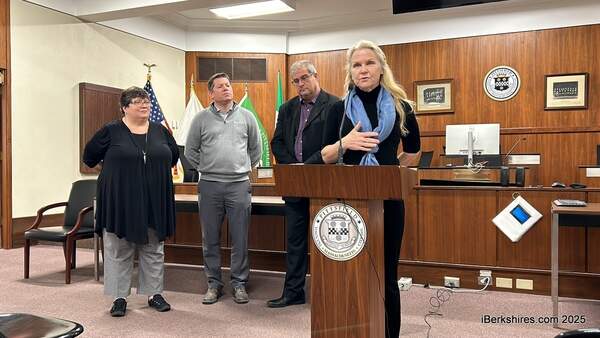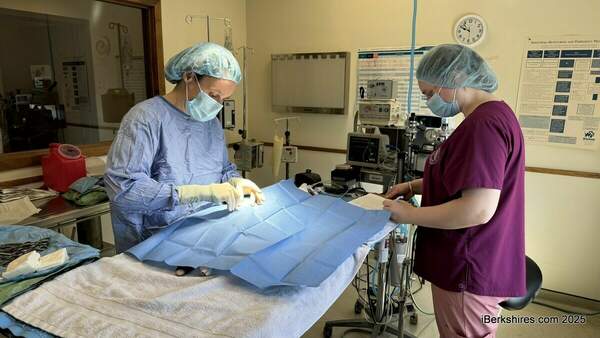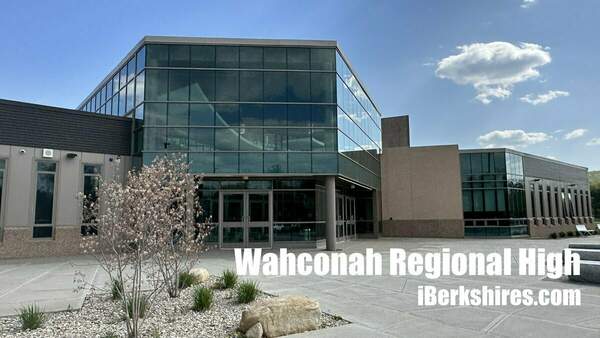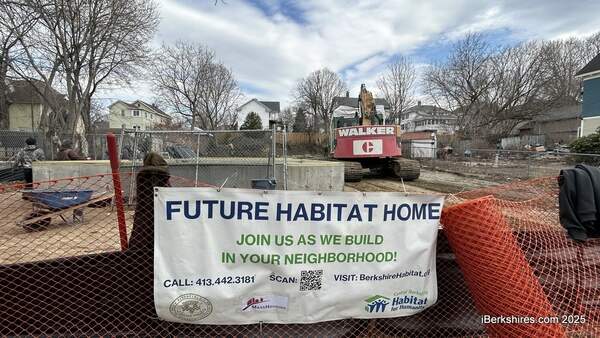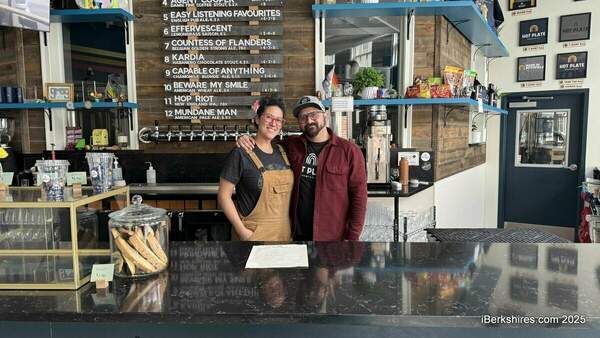Downing Urges Collaboration to Weather Fiscal Storm
.jpg) Sen. Benjamin B. Downing was the main speaker at the Berkshire Chamber's 'Eggs & Issues' breakfast. |
"The more we collaborate the more we can take advantage of the opportunities that we have here," said state Sen. Benjamin B. Downing on Monday morning at Hillcrest Educational Centers. "The more we can become a real model for what other regions of the state should be doing."
The Pittsfield Democrat was speaking at the Berkshire Chamber of Commerce's first "Eggs & Issues" event of the year. The breakfasts are held every couple of months around the county and limited to 50 people, allowing for a more intimate and casual conversation with local leaders.
Downing was introduced by Jerry Burke, president and CEO of Hillcrest, which provides programming for youngsters with severe mental and emotional issues. The center and its affiliate programs, including a dental office and the Housatonic Academy, employ more than 500 people.
The senator gave an update on some of the issues being debated in the Legislature and on the committees he has co-chaired: the Joint Committees on Higher Education (acting chairman) and Revenue and, formerly, Public Service and Senate Ethics.
He joked that his time on the Ethics Committee saw 5 percent of his colleagues indicted, on Revenue, the state's income skidded downhill, and now, as acting chairman on Higher Education, he was worried about the county's colleges.
Of the average 6,400 bills filed in any two-year legislative period, more than 800 make their way to the Public Service Committee, he said, describing it as "the closest you can get to hazing in the Senate."
"The most important thing you learn when you're on the Public Service Committee is to say no, because if you were to say yes to all of the proposals before you, the financial status of the Commonwealth would probably less resemble Massachusetts and far more resemble California or New York State at this point."
Working with House Chairman Jay Kaufman, D-Lexington, the committee established standards for each proposal, requiring filers to not only show the merits of any bills but the long-term effects and costs. The committee deals with a lot of individual groups, especially state employee unions, making it tempting to curry political favor.
He and Kaufman are now heading the Revenue Committee, for which they are looking at metrics to evaluate various tax incentives.
"There are a lot of third-rail incentives out there that if you touch it, everyone screams and wants to run away," said Downing. "We're looking at what's working and what's not ... what are creating jobs and what are not."
With the state looking at a $3 billion structural deficit this year and the governor's budget expected next week, the Legislature is working to balance the services needed with the state's ability to cover the costs.
Downing said he and other elected officials have been speaking with the Berkshires' social service, health and educational facilities to see how they can better collaborate through the "fiscal and financial storm."
"Obviously, we will have challenges because of the budget climate that we are in now," he said, although the state's seen slow but steady growth — about 2 percent — over the past four months. "We're are starting to come out of ... the ditch we fell down in."
The Berkshire delegation is in a position to see how budgets and revenue affect connected services and issues in the county.
"The most important thing we can do in the Berkshire delegation is help people see what we see," said Downing. "It's our job in a climate like this to promote collaboration wherever we can."
The Berkshires has the ability to "connect the dots" and leverage its resources in a way that many areas of the state cannot, he said, because leaders can be put in a room together and get things done.
From the Berkshire Chamber of Commerce to Berkshire Creative to the Berkshire Compact, local institutions and individuals have and are continuing to create partnerships that can be a model for other regions, said Downing.
He touched briefly on the recent election of state Sen. Scott Brown, R-Wrentham, to the U.S. Senate. The Democratic candidate's biggest error, he said, was failing to define the reason she wanted to be senator and to ask people for their vote.
Attorney General Martha Coakley's failed campaign has been widely criticized for its low-key attitude and the candidate's near disappearance over the holidays.
"If you're running for public office, especially in a climate like this, you need to ask for their vote," said Downing.

